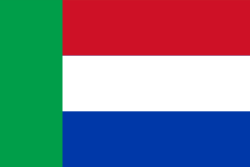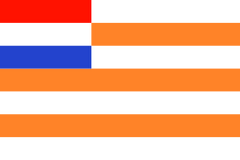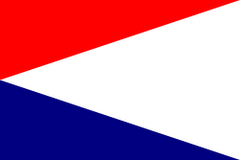The rush for Oil............................................WWIII coming soon.......................................
TORONTO, Canada (AP) -- Canada's prime minister has begun a three-day trip to the Arctic in an effort to assert sovereignty over the region a week after Russia symbolically staked a claim to the North Pole by sending submarines.
Although Stephen Harper's visit has been planned for months, it has taken on new importance since the Russian subs dove 21/2 miles to the Arctic shelf and planted their country's flag in a titanium capsule.
"The Russians sent a submarine to drop a small flag at the bottom of the ocean. We're sending our prime minister to reassert Canadian sovereignty," a senior government official told The Associated Press on condition of anonymity because his language was undiplomatic.
Five countries -- Canada, Russia, the United States, Norway and Denmark -- are competing to secure subsurface rights to the Arctic seabed. One study by the U.S. Geological Survey estimates the Arctic has as much as 25 percent of the world's undiscovered oil and gas.
Harper, who has pledged to spend billions defending Canada's sovereignty over the Arctic, is expected to announce the location of a planned military deep water port later in the week.
"Our government has an aggressive Arctic agenda," said Dimitri Soudas, the prime minister's spokesman.
"Economic development -- unleashing the resource-based potential of the North, environmental protection -- protecting the unique Northern environment, national sovereignty -- protecting our land, airspace and territorial waters."
Last month, Harper announced that six to eight new patrol ships will be built to guard the Northwest Passage sea route in the Arctic, which the U.S. insists does not belong to Canada.
U.S. Ambassador David Wilkins has criticized Harper's promise to defend the Arctic, calling the Northwest Passage "neutral waters."
Harper said last month the deep water port will serve as an operating base for naval ships and will also be used for commercial purposes. He might also announce a military training center in the Arctic.
"Canada has a choice when it comes to defending our sovereignty over the Arctic. We either use it or lose it. And make no mistake, this government intends to use it," Harper said.
The disputed Northwest Passage runs below the North Pole from the Atlantic to the Pacific through the Arctic archipelago.
As global warming melts the passage -- which is navigable only during a slim window in the summer -- the waters are exposing unexplored resources, and becoming an attractive shipping route. Commercial ships can shave off some 2,480 miles from Europe to Asia compared with the current routes through the Panama Canal.
Canada also wants to assert its claim over Hans Island at the entrance to the Northwest Passage.
The half-square-mile rock, one-seventh the size of New York's Central Park, is wedged between Canada's Ellesmere Island and Danish-ruled Greenland, and for more than 20 years has been a subject of unusually bitter exchanges between the two NATO allies.
In 1984, Denmark's minister for Greenland affairs, Tom Hoeyem, caused a stir when he flew in on a chartered helicopter, raised a Danish flag on the island, buried a bottle of brandy at the base of the flagpole and left a note saying: "Welcome to the Danish island."
The dispute erupted again two years ago when former Canadian Defense Minister Bill Graham set foot on the rock while Canadian troops hoisted the Maple Leaf flag.
Denmark sent a letter of protest to Ottawa, while Canadians and Danes took out competing Google ads, each proclaiming sovereignty over the rock 680 miles south of the North Pole.
Some Canadians even called for a boycott of Danish pastries.
Canada and the United States dismissed the Russian flag-planting as legally meaningless.
But Russian researchers also plan to use the dive to help map the Lomonosov ridge, a 1,240-mile underwater mountain range that crosses the polar region. Moscow claims the ridge is an extension of the Eurasian continent, and therefore part of Russia's continental shelf under international law.
The U.N. has rejected Moscow's claim, citing a lack of evidence, but Russia is set to resubmit it in 2009. If recognized, the claim would give Russia control of more than 460,000 square miles, representing almost half of the Arctic seabed E-mail to a friend
Copyright 2007 The Associated Press. All rights reserved.This material may not be published, broadcast, rewritten, or redistributed
Thursday, August 9, 2007
Subscribe to:
Post Comments (Atom)







No comments:
Post a Comment